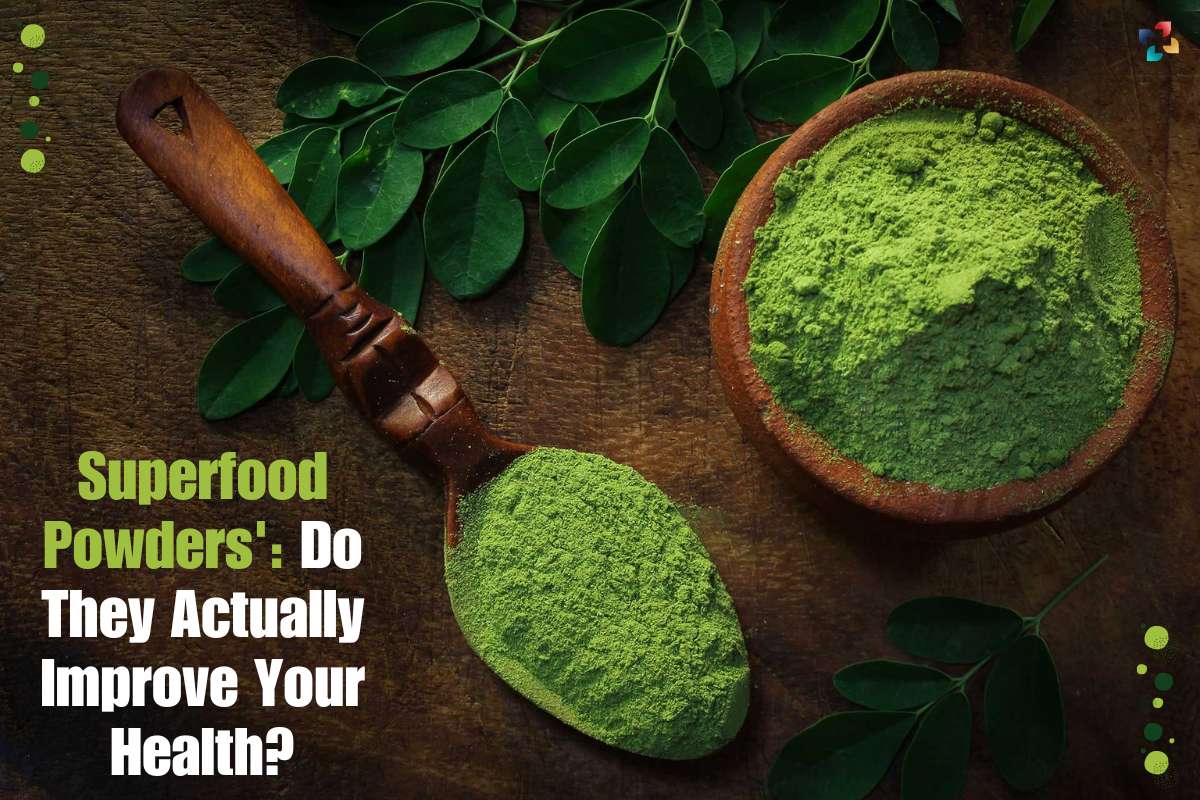Ads for these “superfood powders” have certainly been seen on your favourite podcast or in social media.
These multivitamin powders, such as Athletic Greens, Daily Greens, and Supergreens, advertise that you only need one scoop to get all the vitamins and minerals you require for the day, as well as additional health benefits like a stronger immune system, reduced stress, improved digestion, and increased energy.
These “greens powders” or “superfood powders,” as they are commonly referred to, typically contain a mishmash of vitamins and minerals in addition to additional vogue components like probiotics, minced kale, chia seeds, and ashwagandha.
But do they actually offer a quick route to greater health?
Dr. Marion Nestle, an emeritus professor of nutrition, food studies, and public health at New York University, said of the foods, “They’re so alluring. “Oh, this will be so easy,” you think.
To boost your general health, though, you’ll probably need more than a scoop of powder, she noted, as with other nutrition-related topics.
What’s in them?
A word salad of wellness keywords can be found in the ingredients listings of websites and powder packages.
Typically, you’ll discover the standard assortment of vitamins and minerals, such as biotin (or vitamin B7, which aids in the metabolism of food) and vitamin B12 (which is crucial for the health of your blood and nerve cells).
In addition to ground-up fruits and vegetables like broccoli, spinach, and kale, many “superfood powders” also include plant proteins (like pea protein or brown rice protein powder), prebiotics (which serve as food for the probiotics), and additional probiotics.
A group of plant compounds called adaptogens, including as ashwagandha, reishi, ginseng, and rhodiola, as well as dandelion root, rose hip, and milk thistle seed extract, may also be present. These chemicals are said to help with a variety of ailments, including stress alleviation and energy generation.
Dr Pieter Cohen, an associate professor at Harvard Medical School and an expert in supplements, said: “This is like throwing the kitchen sink into a powder.”
Will taking these powders improve my health?
You generally don’t need to take multivitamin pills like these if you already eat a well balanced diet and aren’t deficient in any vitamins or minerals, according to the experts.
One serving of AG1, the powder produced by Athletic Greens, for instance, provides more than 550 percent of the daily recommended amount of vitamin E and 1,100 percent of the daily recommended amount of biotin. “Superfood powders” frequently contain much more vitamins and minerals than the daily recommended amounts.
According to Dr. Gerard Mullin, an associate professor at Johns Hopkins Medicine and expert in gastrointestinal, your body can generally handle these extra nutrients. Most of them will be broken down and eliminated by your kidneys, he claimed. However, if levels of some vitamins, such as vitamins A, D, E, and K, are high enough, they can have negative consequences, albeit this is uncommon.
#1 Superfood Powder that Heals Your Body & Skin | Dr. Mandell
Regarding probiotic supplements, Dr. Nestle stated there isn’t concrete proof that those who are already healthy will get even healthier if they take them frequently. She continued that while prebiotic pills might support regular bowel movements and promote gut health, the data behind their necessity for the majority of people is still in the early stages.
Many adaptogens, like ginseng and ashwagandha, have been used in Eastern medicine for ages, in part because of their alleged capacity to reduce stress. But there is a paucity of high-quality research regarding their ability to do things like stabilise your mood or reduce anxiety, according to Dr. Cohen.
Athletic Greens and Huel (the company that creates the Daily Greens blend) representatives claimed that while some scientific studies have discovered associations between specific health benefits and the ingredients in their products, no exhaustive, independent studies have examined the health benefits of the products themselves.
According to Dr. Nestle, certain vitamins and other valuable ingredients, including some of the fibre that is crucial for controlling digestion and maintaining gut health, are lost when producers chop up greens like spinach or broccoli into supplements or powders.
According to Dr. Mullin, eating entire, unprocessed meals directly will provide you more nutrients.
Additionally, many of these powders have exorbitant price tags; for example, a 30-serving supply from Athletic Greens starts at $79, while Huel’s Daily Greens costs $45, and Enso Superfoods’ Supergreens powder costs $59.99.
Also Read: The Role of Meditation in Holistic Health








